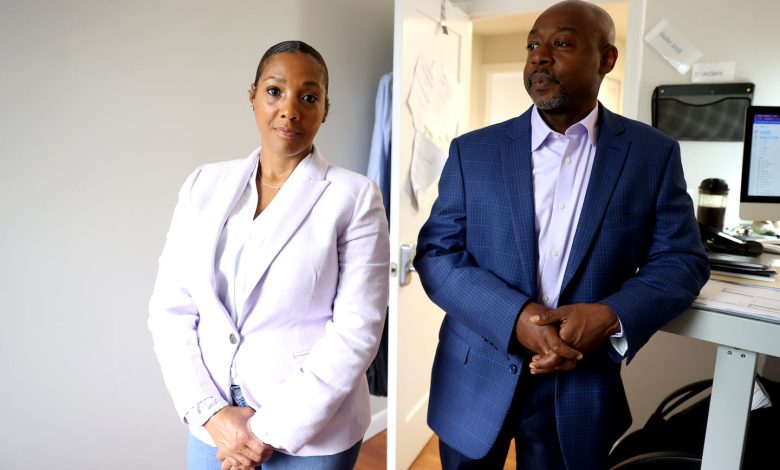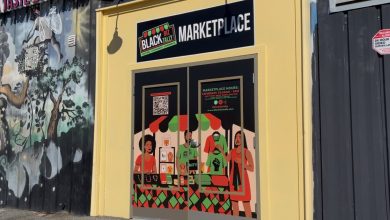Black mental health therapists face barriers in Massachusetts

“We took the good and left the bad, and helped create this,” Labissiere, one of the clinic’s cofounders, said from the Hyde Park Avenue office.
Labissiere and Wynn are rarities in this grueling industry: Black clinicians who have stuck around and own their own practice. The Child and Family Wellness Center isone of just a few Black-owned behavioral health practices in Massachusetts.
In interviews with the Globe, 10 Black mental health care providers, advocates, and public officials agreed several systemic barriers keep the workforce from diversifying. The deep-seated stigma of mental illness among Black people, the time and financial costs of finishing school, and the biases embedded in the field’s license exams are roadblocks for diversifying the workforce, which already suffers from massive turnover and vacancy rates.
The societal costs are immense. Studies have shown that having a provider of the same race and ethnicity can drastically improve one’s quality of care. These disparities mean that not only will people will go untreated, those who do receive services might not be getting care that address all of their unique needs.
The coronavirus pandemic exacerbated anxiety, depression, and suicide rates across the United States, but communities of color and other marginalized groups experienced these symptoms at higher rates, said Gemima St. Louis, vice president for workforce initiatives and specialty training and clinical psychology professor at Williams James College in Newton.
As the mental health crises that COVID-19 drew out persist, stakeholders worry the behavioral health workforce won’t be able to meet this rising demand with culturally competent care.
“We have a workforce that is insufficient, a workforce that lacks the diversity that is represented in the communities that have the greatest needs for mental health services,” St. Louis said.
Advocates are introducing measures to tackle the representation gap at its root. Clinicians working in underserved communities can have some of their student debt covered through MA Repay. Schools such as William James College and Boston College are restructuring their curriculums to retain diverse talent. The few Black and Latino therapists are offering mentorship to the ones who may follow.
The people working to diversify the behavioral health workforce are chipping away at a profession that has historically been for white and affluent individuals. A 2023 Center for Health Information and Analysis survey of 42 Association of Behavioral Healthcare member organizations throughout Massachusetts revealed racial disparities across the behavioral health sector, which the state defines as outpatient treatment for mental health and substance use disorders. Three-quarters of these organizations provided race and ethnicity data.
One in 10 respondents in behavioral health leadership roles identified as non-Hispanic Black. Black respondents made up 9 percent of the survey’s independently licensed clinicians, meaning they don’t need supervision to provide treatment. Only 7.6 percent of behavioral health physicians — professionals with medical degrees — were Black.
The lack of representation within the sector doesn’t match the range of people needing these services, advocates say. A separate survey of insured residents across Massachusetts found that one in 10 non-Hispanic Black residents reported poor mental health in 2021, along with 15 percent of Hispanic residents.
One barrier driving these disparities precedes any roadblocks Black clinicians are facing in their field: mental health care’s taboo nature in their community.
Black people “might have a little bit more wealth and more opportunities, but we’ve never really had a chance to really process our struggles in this country,” said Nieisha Deed, founder of PureSpark, the first Black wellness directory in Massachusetts. “We are just taking things that we dealt with from our past, and moving it into the” present.
Recruitment into the sector can be happenstance, instead of something instilled from an early age. Larry Higginbottom, CEO of The Osiris Group clinic in Roxbury, stumbled across “the mental health field” during a chance conversation in the late ‘80s with Omar Reid, a local pioneer of Black psychology and mental health.
It was a foreign concept, but “[Reed] planted a seed,” Higginbottom, now 71, said.
For Melanie Robinson Findlay, owner of Upwards ‘N’ Onwards, an independent therapy practice in Hyde Park, the death of a best friend during high school propelled her into social work. By the time she pursued a doctorate, she had 18 years of clinical social work experience, completed a clerkship, and was even appointed to the state’s Board of Registration of Social Workers.
But this didn’t seem like enough. She noticed her peers would find supervisors with ease. Meanwhile, “I always felt I had to prove myself.”
“What was I missing that they have?” Robinson Findlay said. “And when you control for all the things, there’s only one thing that pops out.”
Learning about the craft is only the first hurdle to entering the industry. It costs hundreds for social workers, mental health counselors, and physicians alike to become licensed in Massachusetts. And some prospective professionals don’t pass the exam on their first try, and must pay exam fees several times.
Mental health counselors, clinical social workers, psychologists, and other professionals within the field must complete thousands of hours to qualify for a license, some of which have to be under direct supervision from another practitioner.
Labissiere said the onus for supervision is placed on the aspiring clinician; they must find someone who is willing to sign off on their application and in turn, lose an employee that keeps their own practice afloat.
“These are gatekeeper positions,” Labissiere said. “If you don’t have an organization … pushing you to become licensed, we get stuck.”
Wynn worries this mentality might choke off the next generation of clinicians of color, which is already a small group.
“People look at it as competition, but there’s more than enough clients in need,” Wynn said. “It’s not a competition. It’s a collaboration.”
While navigating the many stressors of entering the workforce, many aspiring social workers aren’t taught the financial literacy needed to start and sustain independent practices, said Malaka Mims, president of the Greater Boston Association of Black Social Workers. So many social workers are focused on passing the exam, she said, that they often say, “I don’t know how to be a business owner.”
“Social workers are trained to help others, but the field must also prioritize self care and equip social workers to care for ourselves,” Mims said.
For Robinson Findlay, of Upwards ‘N’ Onwards, running her own practice has been a longtime dream, but it comes with its own challenges. She has scaled her fees down to accommodate low-income clients, and says she is owed thousands in private insurance reimbursements. She makes up with consulting, lecturing, and a postdoctoral fellowship.
Robinson Findlay can barely afford to do this, but she can’t refuse a client’s request. “Even if I say no to one, that’s too many.”
This story was produced by the Globe’s Money, Power, Inequality team, which covers the racial wealth gap in Greater Boston. You can sign up for the newsletter here.
Tiana Woodard can be reached at tiana.woodard@globe.com. Follow her @tianarochon.




